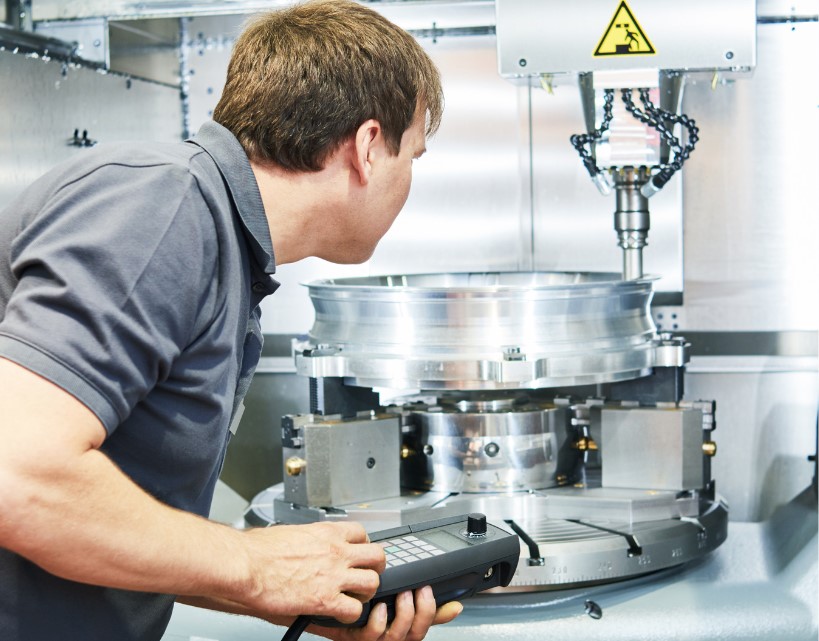Computer Numerical Control (CNC) is a type of machining, has revolutionized engineering and manufacturing in recent decades. CNC Machining is a process that uses digital technology in conjunction with traditional machining techniques to create precision parts in a variety of industries. This article explores the mechanics and advantages and numerous applications of CNC machining, highlighting the impact it has had on the modern engineering.

The mechanics of CNC Machining
CNC machining is a subtractive manufacturing method in which the material is removed from a block of solid material, or workpiece, to create the shape you want. This process is guided by pre-programmed computer software that controls the movements of the machinery. The code created for CNC machines differs based on the type of machine and on the complexity of the product being made. However, the fundamental concept remains the same: High-speed cutters precisely cut away any material that is left to create the final product.
Precision is one of the major benefits of CNC cutting. The digitalization of the process permits extremely precise and consistent production, minimizing human error and ensuring uniformity across batches. This is vital in industries like medical devices, aerospace and manufacturing of automobiles, where minor deviations could lead to grave consequences.
Digital computers play a crucial role in CNC machine operation
Digital technology is at the core of CNC the precision and effectiveness of CNC. CNC machines are controlled by specialized software that automates the entire manufacturing process. This software converts computer-aided designs (CAD) models into a sequence of precise directions, which the CNC machine then follows to create the part. The instructions are able to dictate everything from the speed and direction of the tool used to cut, as well as the angle and depth of each cut.
In large industrial plants computers are typically integrated directly into CNC machines. This permits seamless communication and controls. This integration allows real-time monitoring, which ensures optimal performance while reducing the amount of downtime. The automated nature of CNC machining also allows for continuous operation, dramatically increasing productivity and reducing the time it takes to complete.
The Advantages of CNC Machining
CNC machining is an excellent method of manufacturing. The ability to manufacture complex, intricate parts with a high degree of precision is among the greatest benefits. The precision of CNC machines eliminates the need to make manual adjustments or work rework, thus reducing waste and increasing efficiency. CNC machines also have the ability to work in a continuous manner. This makes them suitable for production runs of large scale.
CNC milling has another benefit in its the flexibility. By changing the program it is possible to make a variety of different parts. CNC machines can be utilized for both mass production and prototyping thanks to its flexibility.
Automating CNC machining improves the safety of work. By reducing the need for manual intervention, the chance of accidents and injuries is decreased. CNC-machined parts are additionally more reliable and work better, increasing customer satisfaction.
CNC Machining Services: Benefits for Industries
The flexibility, precision and effectiveness of CNC machining can be found in numerous industries. CNC machines are used in the aerospace industry to create critical components which must meet rigorous safety and performance requirements. The medical device industry relies on CNC manufacturing for the manufacture of sophisticated surgical instruments and implants, where accuracy is essential.
CNC machineries are used in the automobile industry for making parts for transmissions, engine parts along with intricate exteriors and interiors. In the same way, the electronics industry gets benefit from CNC machines’ ability to create tiny, intricate parts for consumer electronics and communication devices. Jewelry and the art industry as well utilize CNC technology to design individual pieces of jewelry as well as intricate designs.
The Future of CNC Machining
As technology continues to advance in the field of technology, the capabilities of CNC machineries are likely to increase. Multi-axis machining and additive manufacturing integration are expected to continue pushing CNC technology’s limits. The development of machine learning and artificial intelligence will also likely increase the accuracy and efficiency of CNC machine machining.
CNC machining, with its unmatched precision, efficiency and flexibility has had a major impact on modern manufacturing and engineering. Its ability to make intricate parts with high precision is a crucial tool in a variety of industries. CNC machining, as technology advances is expected to remain an integral component in manufacturing’s future.
